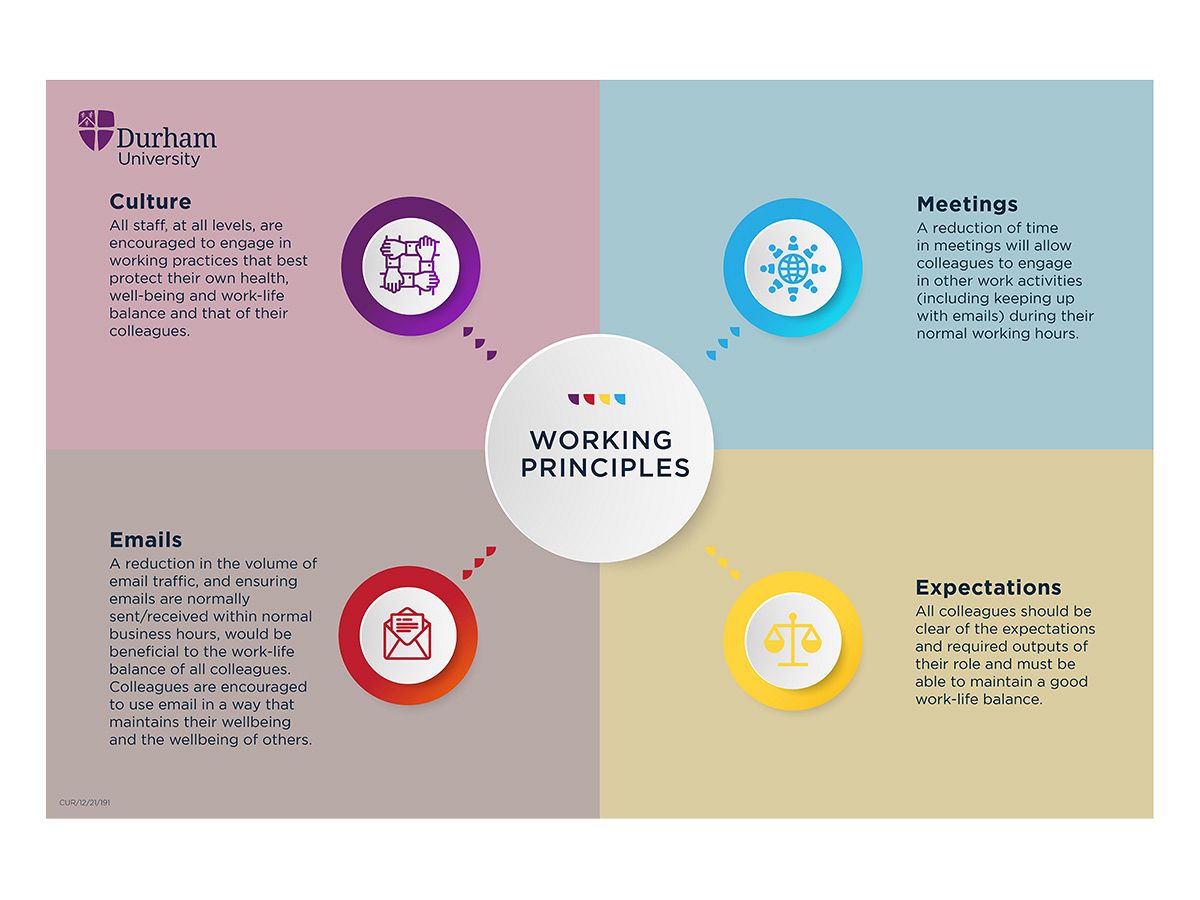As we start a new academic year, and many of us continue to embrace different ways of working, now is a great opportunity to review our working practices.
Before the end of last year we launched our Working Principles in response to your feedback. While the new ways of working come with benefits, they also come with challenges. You told us that you are working longer hours and that your work and home life has become more blurred, and some colleagues are struggling to switch off from work.
Martyna Sliwa, Professor of Business Ethics and Organisation Studies, Associate Dean for Ethics, Responsibility and Sustainability, said: “In our University, work is intensive, and we often deal with the volume of tasks and deadlines by working long hours during the week and ‘catching up’ on weekends. But, as research shows, working many hours isn’t actually productive, and it is detrimental to our and others’ well-being, health and work satisfaction.

Martyna Sliwa, Professor of Business Ethics and Organisation Studies, Associate Dean for Ethics, Responsibility and Sustainability
Implementing the Working Principles will help us at Durham University work in a less intensive but smarter and more sensible way. Together, we will create a happier, healthier and more considerate workplace.
The health, safety and well-being of our colleagues is, and will continue to be, our priority. Our Staff Survey identified employee health and well-being as a key area of focus and how we work is an important part of this.
We need to take care of ourselves and of each other, including in the ways that we work, while also achieving our business needs. So now is a good time to pause, reflect and reset how we work individually and as a community.
Our Working Principles have been developed in consultation with our campus Trade Unions, staff networks, and other individuals from across the University.
The Principles should help us be more thoughtful in how we work, so that we can work better individually and together as teams and a community.

What are the Working Principles?
The Working Principles are there to help us improve our working practices and relate to our:
What can I do?
We're encouraging teams to discuss and implement the Working Principles – agreeing what would work for your team, based around business need. We recognise that due to different working practices and business needs, there is no one size fits all. Some of you may already have some of these principles in your current ways of working, some may be new and some may have slipped during the pandemic. Each Principle may require individuals and/or teams to make small amendments to working practices which, once they become the norm, will have a positive impact on you and your colleagues.
Principles include:
- Agreeing a set half day without meetings to focus on work
- Considering who needs to receive/be copied into an email
- Speaking to a colleague rather than sending an email
- Setting realistic timescales for work to be carried out
We anticipate each Faculty, Department, College and Team will decide which Principles they want to adopt or adapt to better suit their area. No team needs to adopt all of the Principles and/or may choose to implement them incrementally, for example choosing one area of focus per month. You might also come up with additional Principles for your team.
Where can I find further information?
We have developed a Working Principles SharePoint site where you can find further information. We will keep this updated, sharing ideas and tips from colleagues where possible. Please get in touch via the SharePoint site if you have any examples of where this is working well.
